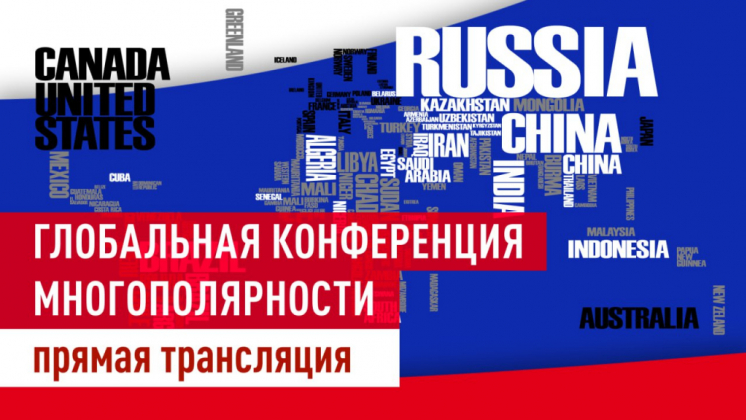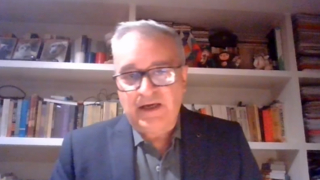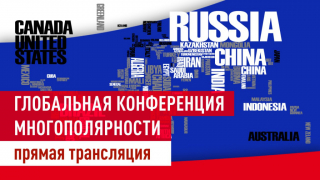Syria and the difficulties of the transition period from unipolar world to multipolarity
The collapse of the Soviet Union caused a huge geopolitical catastrophe that befell the entire world, including the United States of America. It will take a lot of time to adapt to the new reality and realize what happened. So, in the nineties of the last century, the United States moved very carefully, step by step, in order to determine the boundaries of the possible for itself. The United States contributed to the dismemberment of Yugoslavia, unleashed a war with Serbia in the very heart of the European continent. It soon became clear that there were no borders to prevent the advance of the United States, so it was during this period that they prepared a strategy to transform military and economic power, which has no analogues in the history of mankind, into political power without borders and throughout the entire globe. This is what Brzezinski, then National Security Adviser and author of The Chessboard…, said at a seminar organized by the UAE Center for Strategic Studies in Abu Dhabi titled “2000... This is how the future is created”, held October 9-11, 1999, uttering his famous phrase: "The twenty-first century will be the century of American superiority."
Syria was among the most affected countries, as it was the main ally of the former USSR in the Middle East, and its army was completely dependent on Soviet weapons. The situation was further aggravated by the fact that Russian President Yeltsin, who came to power in Russia after the collapse of the Soviet Union, and his government pursued a completely pro-American policy, hostile to developing countries that were in the orbit of influence of the former Soviet Union.
At that time, China was on the sidelines of international political life, not paying attention to the problems of the region, preoccupied with the development of its economy, which established strong ties with the American economy. And so far, the US market accounts for 60% of China's foreign trade.
This is what put Syria in the nineties of the last century in a difficult position and faced a difficult choice in foreign policy level, especially considering that the United States, a strategic ally of Israel, has single-handedly dominated the international political arena and, in fact, began to attempt to indirectly influence an independent sovereign Syrian solution, through the preparation and launch of the Madrid Peace Conference in the Middle East, designed to impose a settlement of the Palestinian issue and occupied Arab territories, as Israel wanted. And that conference took place in November 1991, after the second Gulf War.
Another blow to the firm position of Syria on the Palestinian issue, which was to achieve a "just and comprehensive peace", was the Oslo agreement between Israel and the Palestine Liberation Organization, signed in September 1993 It has driven a big nail into the cause of Arab solidarity and has carved up the Arab-Israeli conflict in such a way that America and Israel deal with each Arab country separately; while Israel continued to occupy part of their territory separately and impose a settlement that only serves Israel's interests. This agreement contributed to the emergence of such slogans as "Palestine for the Palestinians" and "Lebanon for the Lebanese"...etc. That is, from the American and Zionist point of view, each country should mind its own business and nothing more.
Despite this gloomy picture of an international and regional situation that is extremely negative for Syria and its leadership, wise Syrian diplomacy has been able to play an important role in determining who is Syria's enemies and who are friends. Such a stance has greatly strengthened the authority of Syria and played an important role in transforming the pessimism that prevailed in the Arab world into optimism, despite the regional and international problems that Syrian politics faced. Thanks to this, she was able to focus on several interrelated areas in foreign policy, the most important of which are:
First, strengthening and developing relations with the Palestinian organizations that reject the Oslo Accord, opening their offices in Damascus and allowing their leadership to live in the Syrian capital, as well as providing all the assistance they need to show the world that the Oslo Accord has no future, because it does not express the aspirations and demands of the Palestinian people and their leadership, which consist in the creation of an independent Palestinian state with the capital in Jerusalem within the borders before June 4, 1967, as well as the return of Palestinian refugees to their lands, because this agreement is the result of a collusion of the leadership that dominates that moment in the Palestine Liberation Organization, with Israel and the United States.
Second, the development and strengthening of relations with the national and Islamic resistance in Lebanon, which day by day proved its ability to resist the Israeli occupation of southern Lebanon, providing it with the necessary military and material assistance and facilitating the delivery of Iranian assistance so that it could continue and develop its military potential.
This allowed him to withstand and resist the Israeli aggression in April 1996, known as the "Grapes of Wrath", tip the scales in favor of Lebanon, win a national victory and gain international legitimacy, enshrined in the "April Agreement" of the same year.
Third: the consolidation of the principle of "linking the Syrian and Lebanese tracks," which the Syrian and Lebanese leaderships have pledged to take on. Fourth: expansion and development of cooperation with the Islamic Republic of Iran.
Fifth: and this is the most important, which I will go into more detail to emphasize its importance, namely:
Development of cooperation and partnership relations with France. Why France?
France's loss of centuries of imperial ambitions as a result of World War II greatly eroded self-confidence. And this despite the fact that she was in the ranks of the coalition of winners in that war. This led to the fact that she submitted to the American dictate and found herself in a position subordinate to her. At the time de Gaulle came to power, France participated in the NATO military defense committee, and a number of US military bases and key NATO departments were located on its territory, and the remaining French army was subordinate to NATO and directly to the US military command. All this was regarded by de Gaulle as a violation of the sovereignty and interests of France, so he decided to withdraw from the military defense committee of NATO and began to call on Europe for a humanitarian, cultural and political union in order to eliminate American hegemony, but then this was not achieved, because West Germany was associated with military agreements with America, placing it in a militarily dependent position. In addition, Britain was also bound by agreements of this kind with the United States of America. There was a Cuban crisis, which de Gaulle regarded as a victory for the United States, forcing the Soviet Union to withdraw its missiles from Cuba, which put France in a stalemate. France does not want America to dominate France militarily, politically, and culturally, and at the same time does not want to confront the United States in order to preserve French interests. Thus, from that time until the end of the Cold War, France employed two strategies to create room for maneuver and remove American hegemony.
First: the European strategy: it includes what it cannot do alone; it does this in cooperation with other European countries, especially Germany, and this has given it room to maneuver, that is, it takes a position independent of NATO without leaving the bloc and influences the United States without entering into an alliance with them.
Second: the strategy of neo-colonialism. France formally granted independence to most of the countries it colonized after the fall of its empire in Indochina and Algeria. However, it continued to contain these countries and dominate them economically. This worried the United States of America, but they did nothing against France, fearing to weaken the Western alliance in the face of a bloc of socialist countries.
At a time when the USSR was trying to weaken Western hegemony over Third World countries, and the United States was resisting these Soviet efforts, France's strategy exploited this rivalry, seeing it as the basis for French economic opportunity. That is, France was seeking to weaken American influence in Europe, while its neo-colonial policy was based on the rejection of the collapse of its international power, fearing that the United States would take its place, that is, it used its relations with the USSR to weaken American power, not wanting to confront that power.
After the collapse of the Soviet Union, the situation became radically different from what it was during the Cold War. France realized that now, more than ever, the opportunity has come to realize its former dream of removing American hegemony and regaining its lost geopolitical position in the international arena. In addition, France is well aware that other European countries, especially Germany, are only waiting for this opportunity, namely the disappearance of the "communist danger", in order to free themselves from the restrictions imposed by the United States on these countries under the pretext of confronting this danger and evacuating military bases from Europe. Therefore, France is making every effort to focus its foreign policy on several areas in order to provide France with a strong position against the United States, the most important of which are:
First: the economic, political and military integration of Europe, enabling France to exert greater influence on this integration.
Second, strengthening France's position in its former colonies and filling the vacuum in countries that were allies of the former Soviet Union, taking advantage of Russia's weakness at the time, on the one hand, and those countries' need for help in confronting the United States, on the other.
The Syrian leadership realized this reality and sought to use it, meeting the French ambitions, so that Syria, firstly, compensate it for the loss of its strategic ally - the former Soviet Union, and secondly, provide it with the opportunity to pursue its independent political course and protect its national and nationalistic interests, after the United States became the sole dominant pole on the international stage. France is also aware of the importance of Syria as a decisive player in the Middle East crisis, as a very influential party in influencing Lebanon, as an important party in the Iraqi conflict, as a strong ally of Iran and as an important strategic object in the region, not to mention the important Syrian influence in the Arab world.
The first summit, where President Hafez al-Assad met with President Jacques Chirac in Paris in 1996, marked a real turning point in Syrian-French relations as firm rules were agreed on cooperation between the two countries on many issues such as Lebanon, Iraq, Iran, Turkey, Middle East crisis, cultural cooperation and economic reforms. Only questions of armaments and military production remained outside the scope of these dossiers. A Franco- Syrian joint commission for cultural, scientific and technical cooperation was formed, which oversees cooperation programs in the areas mentioned.
It should be noted that the development of relations with France, which reached record levels, not only brought economic and political dividends to Syria, but also became an important starting point for developing relations with other European countries, in particular with Germany, the most important economic power on the European continent. It was also imperative to prevent Hezbollah from being listed as a terrorist and continue to treat it as a resistance movement against the Israeli occupation of Lebanese territories.
***
The world entered the 21st century during the events that played an important role in the development of the political situation in the regional and international arena. The main ones are:
- The arrival of Vladimir Putin to the post of President of Russia marked the beginning of the end of the "honeymoon" between Russia and the United States of America, then causing a revolution in the world public consciousness, because for the first time after the collapse of the Soviet Union, he acted not only ideologically or politically, but began to view the world from geopolitical point of view.
- Israel's unconditional withdrawal from South Lebanon, under the influence of painful blows from the Lebanese resistance, which was considered the first Arab victory over Israel, after which no agreement was reached that obligated the Arab side to do anything.
- Yugoslav President Slobodan Milosevic was overthrown in 2000 by popular protests led by the United States-backed opposition youth organization Otpor that ushered in a new era known as "color revolutions".
- The bombings of September 11, 2001, which were staged by decision makers in the United States to get rid of the limitations of international legitimacy represented by the United Nations, which was established by the victors of World War II, marking the transformation of American economic and military power into limitless political power on a global scale and the exclusion of the emergence of a rival in the international political arena by declaring war on terrorism, which has no boundaries other than those defined by American goals and interests. I will briefly discuss each of these events, as well as the policy pursued by the Syrian leadership in the light of the events taking place there and how they view them.
Putin's coming to the post of President of Russia
When President Putin, compared by some to Ivan the Terrible and Peter I, came to power, Russia was living on the margins of international political life, suffering from a collapsed economy, a weak army that lacked modern military training and weapons, suffering from an internal war of attrition in Chechnya and the Caucasus region.
Putin set himself the goal of reforming the Russian economy, getting rid of the catastrophic consequences of the privatization policy pursued by the previous pro-American leadership; get rid of the financial oligarchy that has formed in Russia; restore the military apparatus, strengthen the army, rehabilitate it so that it can restore its role in protecting Russia and its interests. Putin's most important goal was to prevent the collapse and disintegration of Russia into small entities. According to the most optimistic forecasts, if Putin had stayed in power by pursuing his reformist policy, Russia would have been able to restore its positions in the international political arena, but not earlier than the second half of the 21st century.
Removal of Yugoslav President Slobodan Milosevic from power in 2000
It is known that the United States spent billions of dollars on its military campaign to overthrow Milosevic, supporting separatist movements and dividing the former Yugoslavia into different states. However, this campaign led to an increase in his popularity, instead of toppling him. However, the millions of dollars given to the Selection organization were enough to bring him down from within. This prompted the United States to increase support for this organization, which has become a model school built by the CIA to train the "new revolutionaries" who will form the basis of the "color revolutions" that America has ignited in targeted countries, from Georgia to the "Arab Spring".
Therefore, we saw the slogan "fist" appearing on the streets of Belgrade at the end of the last century, on the streets of Tbilisi, the capital of Georgia in 2003, on the streets of Kiev, the capital of Ukraine in 2004, on the streets of Beirut in 2005, on the streets of Cairo in 2011.
The September 11, 2001 bombings and the declaration of war on terrorism
When the United States declared war on terrorism and its fleets moved to strike and occupy Afghanistan, great powers and small countries were quick to pledge their support, fearing that the war would be protracted.
It is well known that the main goal of the occupation of Afghanistan by the United States is not the elimination of the Taliban movement or the fight against terrorism, since the Taliban and Al-Qaeda were created by the Americans, but the implementation of their strategic plan to dominate the Eurasian region, the creation of military bases and the establishment of a regime loyal to them, which would become the base and bayonet against the creation of any future alliance between Russia, China, India and Iran, and which could pose a threat and compete with such an alliance in the region and in the international arena, as well as serve as a springboard to destabilize the situation in these countries.
Former U.S. National Security Adviser and author of The Chessboard, Brzezinski, said in a speech in Abu Dhabi in 1999: "...Politics in Eurasia has become central to international affairs these days, and today Eurasia is considered the centre of gravity in international politics... Consequently, Eurasia is the chessboard on which the struggle for world domination will take place..."..
The purpose of the occupation of Iraq was not weapons of mass destruction and not the overthrow of the regime of Saddam Hussein. It had more distant geopolitical goals, the most important of which was the encirclement of Iran, the division of Iraq, the creation of military bases in it so that they became a source of destabilization in Syria, the elimination of Lebanese resistance., And then the creation of the "Greater Middle East", the features of which were outlined by Rumsfeld, former US Secretary of Defense, and George W. Bush. The map of this project became known to everyone.
Israel's unconditional withdrawal from southern Lebanon in 2000
The unconditional withdrawal of the Israeli army, the strongest army in the region, from southern Lebanon has served as a torch that has lit the way for resistance movements in countries that have long waged war on terrorism. With the help of Syria and Iran, their experience and methods of resistance were transferred to these movements in Palestine, Iraq and Afghanistan, which dealt heavy blows to the American occupation, causing it to suffer serious losses and future defeat.
In light of these developments, Syria and its leadership needed to pursue a creative foreign policy and diplomacy that would enable it to bolster its resilience, avoid direct confrontation, and be able to take advantage of its position and geopolitical advantage. The goal is to play a role that, together with the resistance alliance, could resist the Greater Middle East project, especially since it is the main goal and a pass to this project developed by the US administration. His most important task has become known as the war on so-called terrorism.
The Syrian leadership was well aware of the importance and position of the Middle East in the international conflict. As British historian Albert Hourani said: "Whoever controls the Middle East controls the world, and whoever seeks world domination must have influence in the Middle East." This is the importance of using this truth by Syria and the opportunity to play on this in the international political arena, serving national-patriotic goals.
At the same time, the Syrian leadership was aware that Syria was threatened at any moment by aggression, whether from Israel or the United States, especially after the dramatic events of September 11, 2001, so at that stage it was necessary to work on several fronts, the most important of which were:
First: using the time factor and working to strengthen internal elements to preserve national sovereignty and independent political decisions in the economic, political and military fields.
Second, supporting and defending the Lebanese and Arab national resistance, in particular allowing the Lebanese resistance to force Israel's unconditional withdrawal from the occupied south of Lebanon in May 2000.
Third: using the importance and geopolitical position of Syria in the region, in the existing international conflict, towards the destruction of the dominant unipolar world led by the United States and the establishment of a multipolar world and the return of a real and natural role of the United Nations in the international political arena.
The most prominent landmarks and positions taken by Syria, as well as its important role in countering American plans, contributed to its defeat in the international arena:
- Withdrawal of Colin Powell's demands and conditions and US threats against Syria in 2003
- Continued negotiations on the Euro-Mediterranean partnership.
Of course, the Syrian leadership was aware that the partnership with the former colonial countries would not be equal, but in the light of the presence of the dominant American pole in the international political arena, it could be used in the national interest in the foreseeable future and become an auxiliary factor in resisting American arrogance, taking into account that the road to signing a partnership agreement is long, and that the timing was important for Syria.
I do not want to go into the details of the negotiations, because this topic is limitless. However, I will say briefly that when the European countries unanimously agreed to sign the partnership agreement in October 2009, after Syria, to the extent possible, took advantage of the economic advantages that accompanied the negotiations at all stages. Syria asked for some time to further study them, and as a result, after that, it never signed any agreements.
The most important gain, in my opinion, besides the economic gains, is that these negotiations with the Europeans provided political cover for the National Resistance in Lebanon, and contrary to all the expectations and attempts that were made to recognize Hezbollah as a terrorist organization, the Europeans recognized, and this is what was important to Syria, that Hezbollah is an important component in the palette of political elements of Lebanese society, and has been interacted with throughout this period and still continue to interact on this basis.
- Indirect negotiations with Israel.
Syria has always stated that peace is Syria's strategic choice, as the peace it desires has fixed parameters, the most important of which cannot be changed or abandoned:
- The liberation of the occupied Arab territories at the time of June 4, 1967
- Establishment of an independent Palestinian state with Jerusalem as its capital.
- Granting legal rights to the Palestinian people, including the return of Palestinian
refugees to their territories from which they were expelled.
The Syrian leadership was fully convinced of the futility of the negotiations and that Israel, in the end, would not be able to agree to the Syrian terms. However, there are international and regional considerations that prompt Syria to agree to them. In addition, the Syrian leadership wanted to correct the misconception imposed by the Western media and spread in a number of countries of the world and among the peoples living in them, that Syria is a sponsor of terrorism, it rejects peace with Israel, that it is worse than other Arab countries such as Egypt and Jordan ; they tried to convince these countries and peoples that there was a big difference between a just peace that guaranteed rights and a capitulation imposed by one side on the other side through threat and force. But in fact, it turned out that Israel is the one who rejects the world and wants to impose its domination, its hegemony over the countries of the region.
- Refusal to accept the offer of Qatar to transport gas through Syria to Turkey and all the promises offered for this.
Despite the privileged relationship between Syria and Qatar, the Syrian leadership rejected a Qatar-proposed project to transport gas overland through Syria to the Turkish port of Ceyhan and then to Europe. The question is why Syria rejected the Qatari project, which simultaneously carried material and political benefits, not to mention the fact that Qatar is an Arab country.
The fact is that the Syrian leadership is well aware that the one who will control the crane of the Qatari gas pipeline in the future is not Qatar, but the United States of America, which wants to take the place of Russia and influence it from this side. Thus, by rejecting Qatar's proposal, the Syrian leadership sought to weaken American hegemony in the world, leaving it no chance, geopolitically influencing the emerging international poles that compete with the United States in the international arena.
- Continued assistance, and support and protection of resistance
It is not surprising that resistance is the main vector of the Syrian position, which all other positions are guided by and work for.
And it is not surprising, given the scale of the threats and pressure being put on Syria to break the resistance, which was the most important weapon in the hands of Syria and its alliance with the resistance during the period of American blackmail on the international stage. This pressure, manifested in the conditions put forward by Colin Powell in 2003 and resolution 1559, which was adopted by all permanent members of the Security Council, including Russia and China, with the aim of withdrawing Syrian troops from Lebanon and disarming the resistance, as well as from the US law on bringing to justice Syria to blame Syria for the assassination of former Lebanese Prime Minister Rafik Hariri, turning it into a pretext for international action to strangle Syria.
When pressure and resistance against Syria failed, America pushed Israel in July 2006 to launch a barbaric aggression against Lebanon in order to end the Lebanese resistance, which was to be the main rehearsal for the subsequent aggression against Iran and Syria, marking the beginning of the first phase of the "Great Middle East Project", the implementation of which America has long dreamed of.
However, the amazing victory achieved by the resistance against the strongest army in the region with the help of Syria was like an earthquake that spread across the globe, awakening, for the first time since the collapse of the Soviet Union, an anti-American political movement around the world, as it became the crown of the victories of the resistance in the region and the main factor in the destruction of one of the pillars of the unipolar world order, which paralyzed the ability of the United States to unleash a new large-scale aggression anywhere in the world.
Research and political analysis confirm that if it were not for these defeats inflicted by the national and Islamic armed resistance on Israel and the United States, whether in Afghanistan, Iraq, Lebanon or Palestine, then Russia would hardly have dared to respond so decisively and powerfully to the Georgian aggression against South Ossetia in 2008 and sent the symbols of its strategic weapons to areas adjacent to the United States to announce its resolute return to the international political arena and that its interests now represent "red lines" that cannot be violated.
If not for the victory of the resistance, China would hardly have returned to international political life after a ten-year absence from it and would not have sent its naval ships to the islands disputed with Japan, which are under the protection of American troops, in accordance with the defense agreement signed between the two countries.
The then strengthening of Sino-Russian rapprochement in preparation for the next stage, against the backdrop of a clear weakening of the US role in the international arena, was due to the victories of the resistance. In 2008, five high-level meetings were held between the heads of state of the two countries, and on January 29 of the same year, a hotline between the defense ministers of the two countries was launched, which experts perceived as the beginning of a process of closer military-political cooperation between the two countries to ensure stability in Eurasia and in the world.
Finally, we can state that the circumstances mentioned above and the policies pursued by Syria, as well as the subsequent victories of the resistance that it nurtured, supported and defended, were the main reason for the failure of the most dangerous international conspiracy in history, led by the United States and its allies against Syria. in which they used all the means at their disposal in the region.
The resilience of the Syrian army, people and leadership forced the United States to create the Daesh (ISIS) organization, which was joined by mercenaries from the Al-Qaeda organization, which trained and armed them to fight the Soviet Army in Afghanistan. After the United States transported them into Syria and Iraq to justify the formation of an international coalition under their command and the establishment of military bases in northern Syria for their protection, as well as the creation of a springboard for their advance into the interior of Syria and Iraq.
Russia has realized the seriousness of the situation, because it is she who is the ultimate goal of overthrowing the government in Syria. For the first time in the history of the United Nations, it used a joint veto with China to prevent the passage of international resolutions that would legitimize for America and its allies direct military intervention in Syria.
This decisive Russian stance at the international level prompted the United States to overthrow the legitimate regime in Ukraine in 2014 through the so-called "Maidan events" and brought neo-Nazis to power.
When the so-called international coalition, Daesh and other terrorist organizations created a threat to Syria and Russia's only base in the Middle East, it launched its military operation to support the Syrian army in 2015, inflicting a crushing blow on the terrorists, their infrastructure, their weapons depots, and squeezed out the terrorists they controlled from the Syrian cities.
This Russian military intervention, which allowed Syria to triumph over terrorism, accelerated the arming of Ukraine by the United States and NATO in preparation for a direct confrontation with Russia from Ukrainian territory. The goal is to deplete Russia before removing it from the international political equation, and then switch entirely to China to contain it.
Realizing the seriousness of the situation, Russia tried to reach an agreement with the United States and European countries that would guarantee its security and the security of European countries at the same time. But the refusal of the United States and leading European states, in particular Germany and France, to reach this agreement forced Russia to launch a special operation in Ukraine to ensure its security and the security of regions where the Russian population is the vast majority.
More than a year after launching a special military operation in Ukraine, Russia has managed to achieve most of its goals despite unprecedented economic sanctions and unrestricted Western military support for Ukraine. The result of the military operation, which will definitely be in favor of Russia, will be the last nail in the coffin of the unipolar world, the beginning of the era of the multipolar world, the topic of our World Conference.
From the above, we can conclude that after the collapse of the Soviet Union and the formation of a unipolar world led by the United States of America, Syria played an important role in its regional and international policy, helping the forces of national and Islamic resistance in the Middle East region in opposing unipolar domination in the world and speedily transition to a multipolar world.













